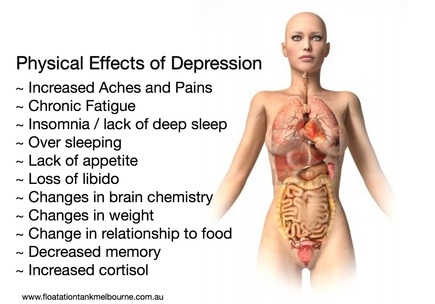
Depression is one of the most common mental illnesses that affects over 1 million Australians. It is more than just a low mood, or feeling down – people with depression struggle daily, over long periods of time, and it can have profound effects on the health of the body, mind and spirit if left untreated. And, even when treated, there is a high likelihood of the depression returning at some stage in the person’s life if the deeper core issues are not faced and resolved.
Depression affects the whole person. Whilst the disorder is perceived to begin in the mind with “negative thoughts”, this is not always the case. Depression can have biological, psychological, physiological & biochemical causes such as imbalances in brain chemistry, but also it has been shown that our gut health and nutrition also has a direct effect on the brain via the vagus nerve. Also, serotonin (the brain chemical responsible for regulating moods) is mainly produced in the stomach!

Depression can upset the regulation of basic functions such as eating, sleep and energy levels. Having these important areas disrupted can create a host of secondary symptoms such as:
- Aches and pains that are unexplainable
- Tiredness and fatigue
- Weight loss/gain
- Change in relationship to food (emotional overeating/not eating)
- No energy to meet the needs of daily life.
Depression and the stress response
Negative thoughts can trigger depression, or feed it further if you are already in a low mood. When a negative thought or image arises in the mind, this can create stress and tension in both the mind and the body. Whether it is a frown, a feeling of tightness in the stomach, or tension in the shoulders or back – all of these are responses to the brain perceiving a threat and triggering a fight/flight/freeze response via the sympathetic nervous system. This is our basic survival instinct at work, which is located in our “reptilian” part of the brain. This ancient part of the brain makes no distinction between actual physical threats (like an animal about to attack us) or perceived threats (a negative thought/ worry about the future/ memory from the past).
When this survival response is triggered, we release a hormone called cortisol (sometimes referred to the “stress” hormone). A build up of cortisol in the system can have detrimental effects on the whole system including decreased immune function, decreased memory, increased inflammation and generally can negatively affect metabolism and health over time.

Floatation Therapy can help in the treatment of depression in a number of ways. Physically, it helps to clear cortisol and stress from the body, allowing the body to deeply relax. Also, it is well known that Floatation Therapy releases endorphins, (feel good chemicals) which have a positive effect on mood and also help to relieve pain.
The high levels of magnesium (Epsom Salts) are also beneficial to relax the muscles, clearing away physical tension. Magnesium - an essential and important mineral - also plays an important role in depression, as it can become easily depleted during times of stress. Research has also shown that magnesium plays a key role in the treatment of depression, as it is commonly depleted in those who suffer depression and effects brain chemistry, particularly serotonin. Increasing dietary magnesium can be beneficial to improving serotonin production, as well as being beneficial to improving sleep, and enhancing many physiological processes in the body. People often find that after a float, their sleep is improved.
On a mental level, Floatation Therapy can be a wonderful way to introduce the concept of mindfulness and also meditation. “Mindfulness is the awareness that emerges through paying attention on purpose, in the present moment, and non-judgementally to things as they are” (The Mindful Way through Depression)
The simple act of observing our thought processes can increase our awareness of our mental activity, and we can become more aware of the specific thoughts, behaviours or choices which may be contributing to your state of being.
References and Further Resources for Depression
- “The Mindful Way through Depression: Freeing yourself from chronic unhappiness”
- Beyond Blue
- Black Dog Institute
- Robb Wolf - Nutrition and Depression
- Depression and Nutrition
- Gut and Psychology Syndrome (GAPS)
- GAPS Australia
- Physiology of stress - Cortisol
- Magnesium for treatment resistant depression

 RSS Feed
RSS Feed